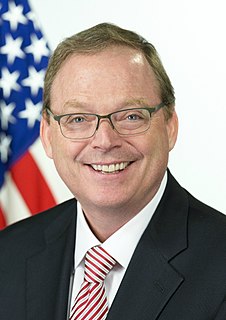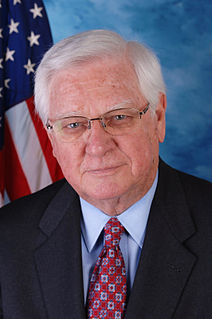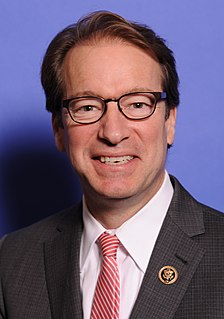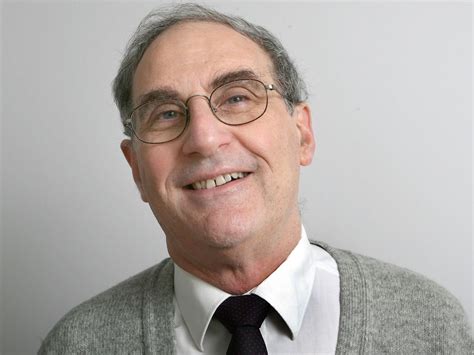A Quote by Kevin Hassett
The fact is that any carbon legislation is designed to make us not use coal. So if you're a state that has a lot of coal, you're going to get hammered.
Related Quotes
Letting the perfect be the enemy of the good is one of the reasons we have a coal-dependent infrastructure, with the resulting environmental impact that all of us can see. I suspect environmentalists, through their opposition of nuclear power, have caused more coal plants to be built than anybody. And those coal plants have emitted more radioactive material from the coal than any nuclear accident would have.
Coal used to be a very dirty fuel but coal has become cleaner and cleaner over the decades. Clean coal now is quite clean. Clean coal now has the same emissions profile as natural gas. Clean coal can become cleaner still. We can take even more of the pollutants out of coal and I believe we should. Clean coal, I think, is the immediate answer to Canada's energy needs and the world's energy needs. There are hundreds of years available of coal supplies. We shouldn't be squandering that resource. We should be using it prudently.
Carbon capture and storage, its commercial development.. is going to be the key to the future of coal. If it is successful commercially, then the Australian coal sector will be a center of prosperity and growth; if it's not successful then it won't be. I think in the long run it's as simple as that.
Coal is a portable climate. It carries the heat of the tropics to Labrador and the polar circle; and it is the means of transporting itself whithersoever it is wanted. Watt and Stephenson whispered in the ear of mankind their secret, that a half-ounce of coal will draw two tons a mile, and coal carries coal, by rail and by boat, to make Canada as warm as Calcutta, and with its comfort brings its industrial power.
I'm old enough to remember when the air over American cities was a lot dirtier than it is now. You've probably never woken up early on a winter morning to the acid stink of coal smoke in the air, which was everywhere when I was a little kid. My grade school was heated with coal. Not only was coal used to generate electricity, it was without any scrubbers in the stacks.
The climate-change industrial complex pontificates that the U.S. has to stop using coal to save the planet. But even if the U.S. cut our own coal production to zero, China and India are building hundreds of coal plants. By suspending American coal production, we are merely transferring jobs out of the U.S.
We're not really a state. We're a colony. Everything we've ever had - timber, coal - it's all been extracted out of our state. Our people have been here and have worked in those industries, and they remained poor, but the people outside of our state that are the ones that come and get the timber, get the coal, have become billionaires.
Overall, you know, no state in our country has been hurt more by the eight years of Barack Obama than Wyoming has been, and whether it's the absolutely unconstitutional role that the EPA is playing and the president trying to kill our coal industry - Wyoming is the nation's largest coal-producing state. So when President Obama and Hillary Clinton say they're gonna put coal out of business, it hits us harder than just about anyplace else.




































